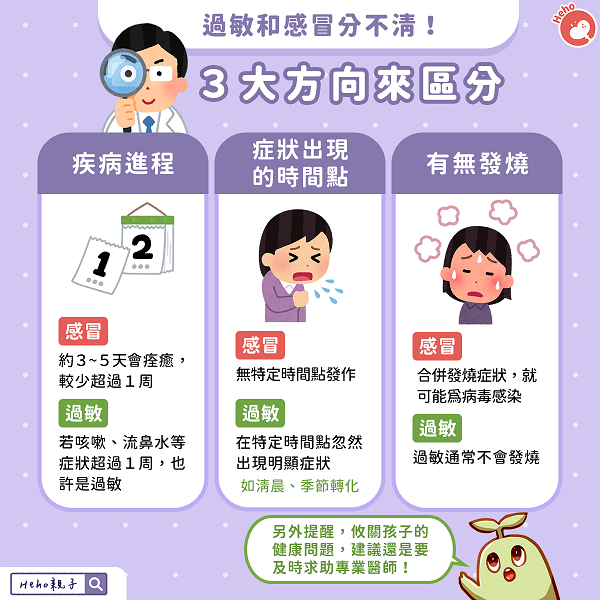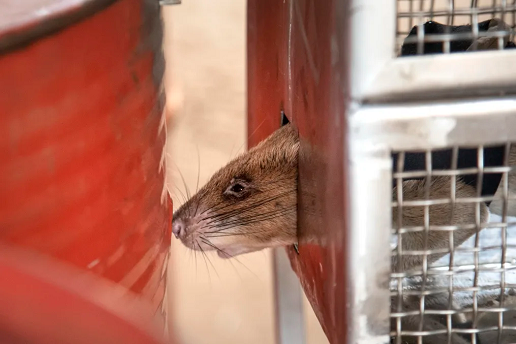When your child’s runny nose just won’t stop, do you find yourself confused between allergies and colds? During seasonal changes, the symptoms of allergies and colds can seem similar, especially with the recent surge of viruses. How can you quickly differentiate between the two and apply the right treatment? There are three key ways to distinguish them easily. Allergy symptoms and cold symptoms often overlap, making it difficult to distinguish between the two. Here are three main ways to easily differentiate them. (Photo: Heho Health)
Allergy symptoms and cold symptoms often overlap, making it difficult to distinguish between the two. Here are three main ways to easily differentiate them. (Photo: Heho Health)
Similar but Different: Overlapping Symptoms of Allergies and Colds
The symptoms of allergies and colds, particularly nasal congestion, coughing, and a runny nose, often confuse. Allergies may also be accompanied by conditions like eczema or asthma, whereas colds are often caused by viral infections. Here are three main ways to differentiate between them:
- Illness Duration: Colds are Short-term, and Allergies Last Longer:
A cold typically improves within three to five days of catching the virus and usually resolves within a week. However, if your child's symptoms persist beyond a week without improvement, it may be due to allergies. Allergies have no set timeline and will persist as long as the allergen is present. - Timing of Symptom Occurrence: Allergies Trigger at Specific Times:
Cold symptoms can occur at any time, but allergies often have specific triggers, such as early mornings or during seasonal changes. If your child’s symptoms flare up when allergens are present and subside when they disappear, it’s likely allergies. - Presence of Fever: Colds Often Include Fever and allergies:
If your child has a cough, runny nose, and fever, it’s likely a cold or viral infection. Allergies generally do not cause fever. If fever occurs, you should seek medical attention to rule out infections.
Consult a Professional for an Accurate Diagnosis
Although these tips can help parents quickly assess their child's symptoms, a professional diagnosis from a doctor is essential to avoid misdiagnosis and ensure timely treatment. During seasonal transitions, viruses spread more easily, so if your child has symptoms of either allergies or a cold, see a doctor promptly to protect their health and help them recover quickly.







